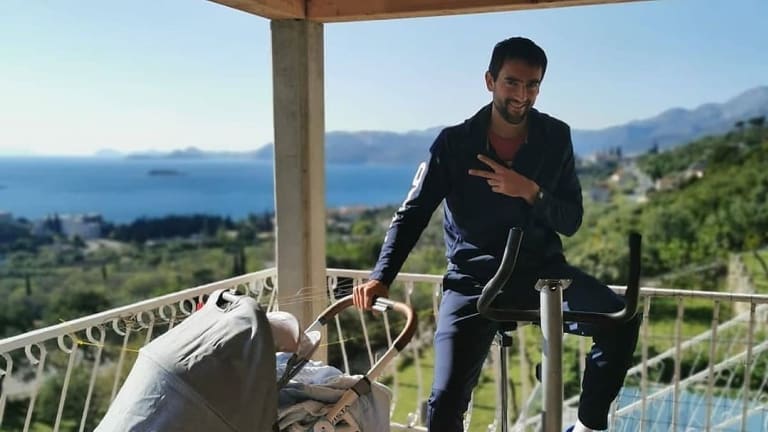Marin Cilic
Those that are contested whenever tennis resumes, if it happens without fans, will suffer, too, in an economy shredded by the virus. Additionally, if fans are allowed, will they return en masse even if social distancing requirements somehow wane? In the here and now, when the 31-year-old Cilic was asked if he would object to tournaments freezing or decreasing prize money, he said no.
“That would be just a normal situation,” said Cilic, who is spending the lockdown near Dubrovnik with wife Kristina and their 3-month-old son, Baldo.
“For many years a lot of ATP tournaments and Grand Slams have been doing so well, it was the time for the tournaments to start to increase the prize money, as the economy was unfolding in that way. For us, the main and most important thing is to keep the calendar, to keep the tournaments running that give the fruits. It’s the special thing for tennis to have that kind of a long and full calendar.”
ATP chairman Andrea Gaudenzi didn’t discount a freeze or reduction in prize money, an unfathomable thought when he formally began his new job in January. The Italian has had little time to settle in, but his vision is impressive. Both tours continue to examine the possibility of moving suspended events to later in the campaign.
“We’re looking at all options,” Gaudenzi said in an email. “If we are able to reschedule events this year, it will inevitably mean under different conditions than were initially set out, with significant changes to the calendar.
“We should also anticipate new protocols in terms of how events are able to operate, with possible restrictions to on-site attendance, and more. We cannot ignore the crisis’ impact on the economy and all these factors will be taken into consideration as we determine how best to move forward.”
As for actually handing out cash, that could be significantly trickier since the ATP and WTA, said Stosur, “don’t have a bottomless pit of money.” Tough choices thus abound about the destination of available resources.
“We intend to support the tournaments as well as the players,” said Gaudenzi. “For any support we are able to offer, we’ll be looking to take a ‘bottom up’ approach in terms of supporting those that need it the most.
“The extent of the financial relief available is difficult to ascertain without having clarity on the duration of the crisis. Equally, tournament financial relief will not be known until we know whether tournaments can be rescheduled this year. At this time, our intention is to try and reschedule as many tournaments as possible.”
Meanwhile, Gaudenzi’s more experienced counterpart at the WTA, Steve Simon, said in an email the women’s tour would “continue to look into various options as to how and where the WTA can provide further financial relief to our players and tournament members who may require assistance” during these “unprecedented and challenging” times.

